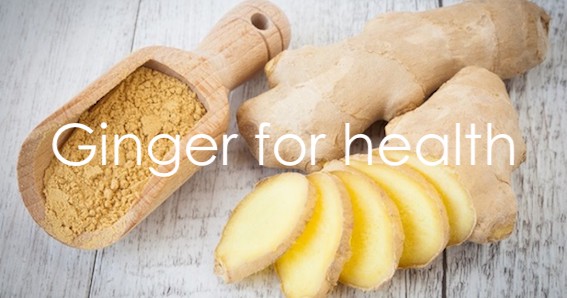Todays post is about Ginger.
During the past month Scott has started growing ginger in our vegetable garden. So far it seems to be growing well. I’m looking forward to seeing what the flowers are like.
When we were holidaying in Fiji, the Ginger Lilly was a popular cultivated plant with beautiful, fragrant flowers. Hopefully the edible species has similar flowers.
It also has so many health benefits and can be used in many different ways.
So what Is Ginger?
It is also known as Zingiber officinale, is inaccurately referred to as “ginger root”, although the edible section sold in the markets and used in dishes is actually the stem or the rhizome. Ginger can be used fresh, dried, powdered, or as an oil or juice, and is sometimes added to processed foods and cosmetics.
It is loaded with nutrients and bioactive compounds that have powerful benefits for the body and brain.
Not only is ginger known as an essence and a spice, it is known to be one of the oldest remedies in herbal and aromatic traditional treatments, especially in China, India, and the Middle East. In China, it has been used for over 2,000 years for curing inflammation and diarrhea.
Gingerol is the main bioactive compound in ginger, responsible for much of its medicinal properties. It has powerful anti-inflammatory and antioxidant effects.
Today, ginger is on the FDA’s list of generally safe foods and is often used to mask the taste of bitter medicines such as cough syrups.
Here are 6 health benefits of ginger that are supported by scientific research.
1. Improve Brain Function and Protect Against Alzheimer’s Disease
Oxidative stress and chronic inflammation can accelerate the aging process.
They are among the key drivers of Alzheimer’s disease and age-related cognitive decline. Some studies suggest that the antioxidants and bioactive compounds in ginger can inhibit inflammatory responses that occur in the brain.
There is also some evidence that ginger can directly enhance brain function
2. Highly effective against nausea.
Studies have concluded that 1 -1.5 grams of ginger can help prevent various types of nausea. This applies to relieving nausea and vomiting after surgery, motion and morning sickness.
Its quick absorption and rapid regulation of body functions cure nausea without the side effects of modern medications.
3. Help Fight Infections
Gingerol can help lower the risk of infections as it inhibits the growth of many different types of bacteria. Fresh ginger may also be effective against the RSV virus, a common cause of respiratory infections.
4. Treats Diarrhea
Ginger has been used since ancient times to cure diarrhea. This was recently proven by researchers that found it prevents stomach spasms and gases that contribute to and stimulate diarrhea.
5. May Reduce Muscle and joint pain.
Gingerol, is a powerful anti-inflammatory compound, which has been directly associated with improvements in knee inflammation and associated pain. Ginger does not have an immediate impact, but may be effective at reducing the day-to-day progression of muscle pain as both a preventative measure and a treatment.
6. Aids in Digestion
Ginger has been discovered to be a facilitator of the digestive process. It helps in regulating high sugar levels that may disrupt digestion and soothe the stomach. Along with that, it has a number of compounds that improve the absorption of nutrients and minerals from the food we eat. It is popular in Asian countries as an appetiser or raw menu item for precisely this reason.
There are so many more health benefits associated with Ginger. It is also quite versatile and easy to include it in our daily diet, whether it’s fresh, pickled, dried or ground.
With all of this in mind, I will definitely be trying to consume it every day.
Till the next post,
Live clean n prosper.

